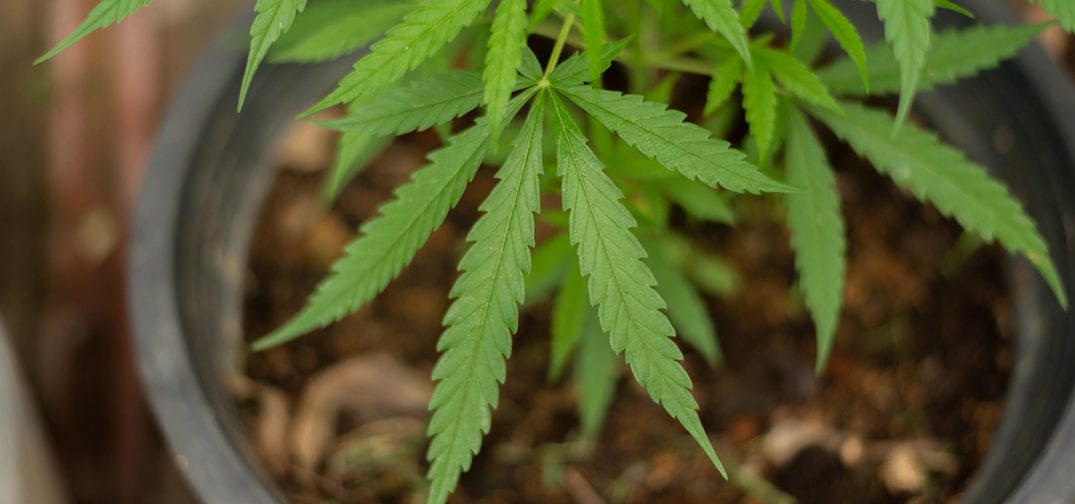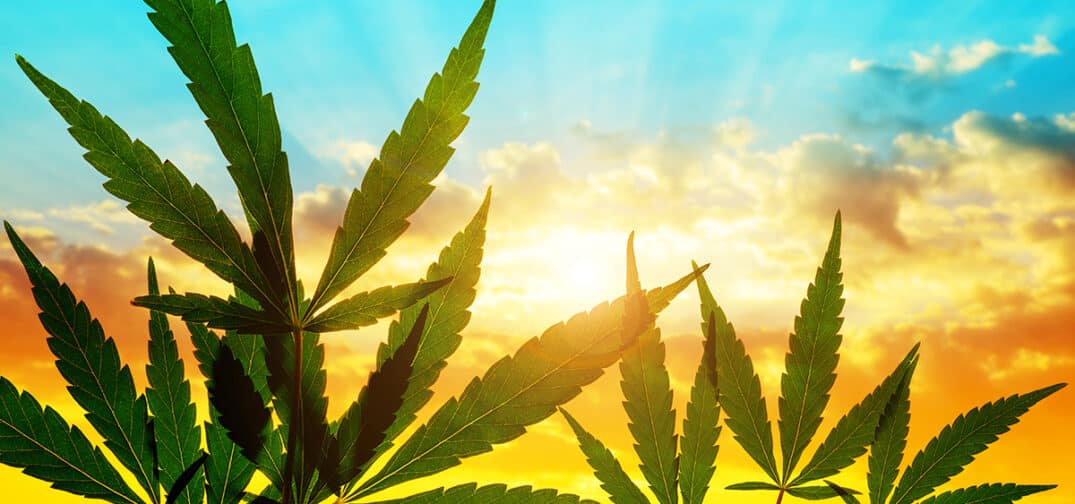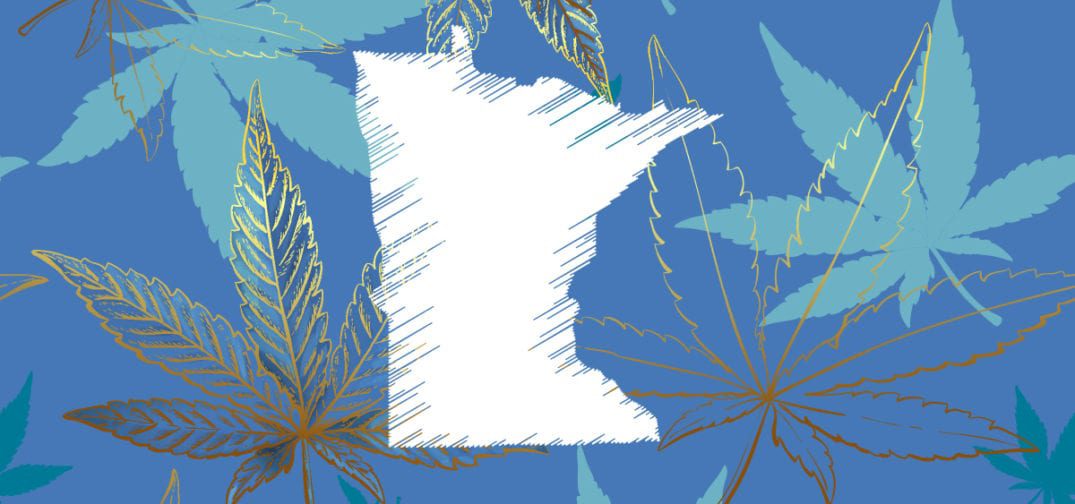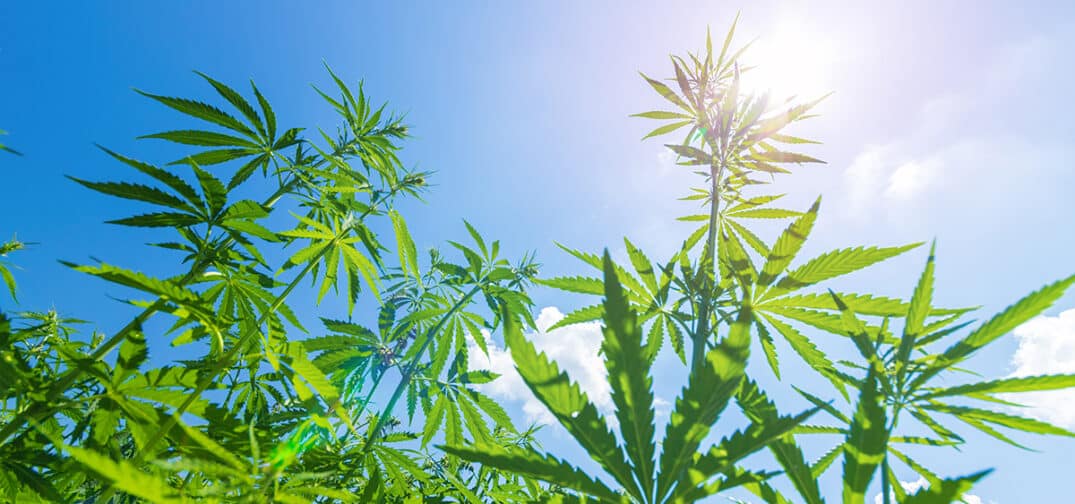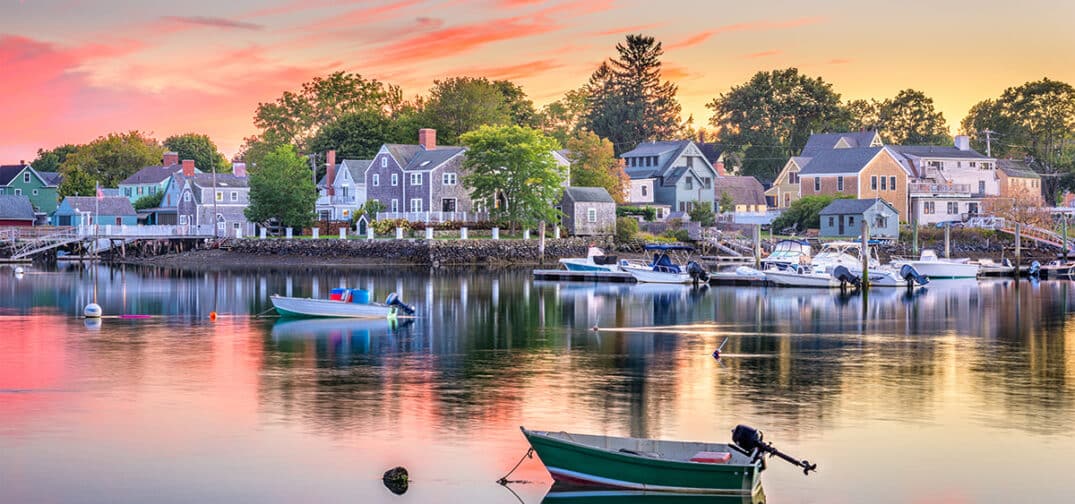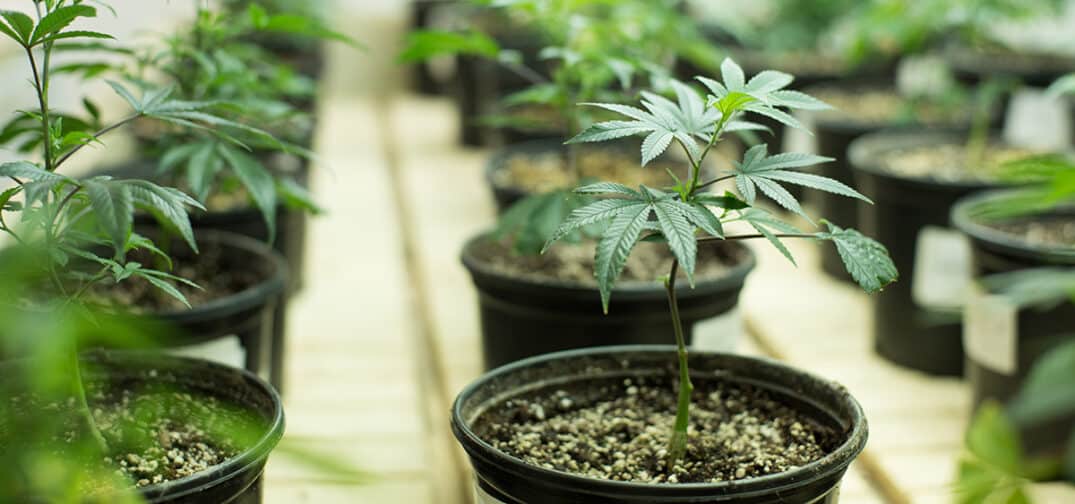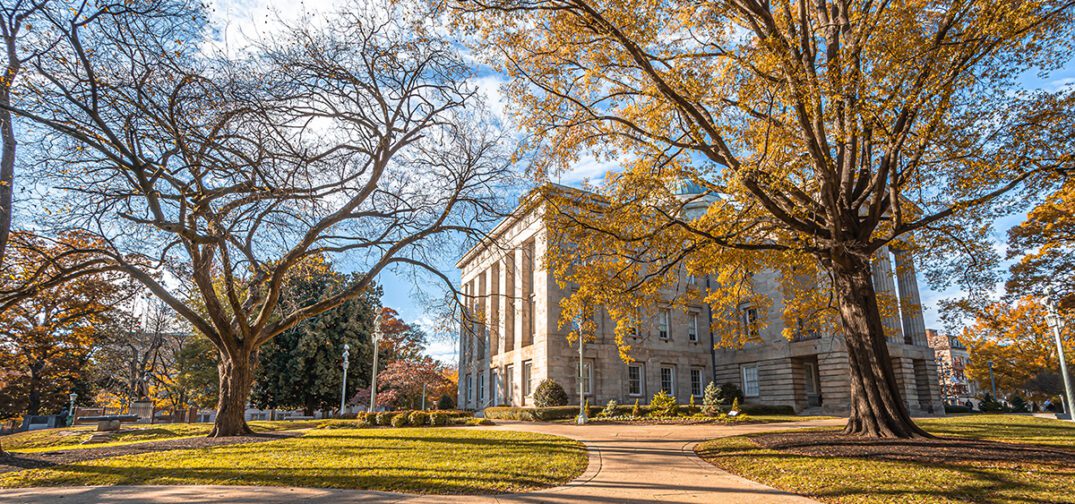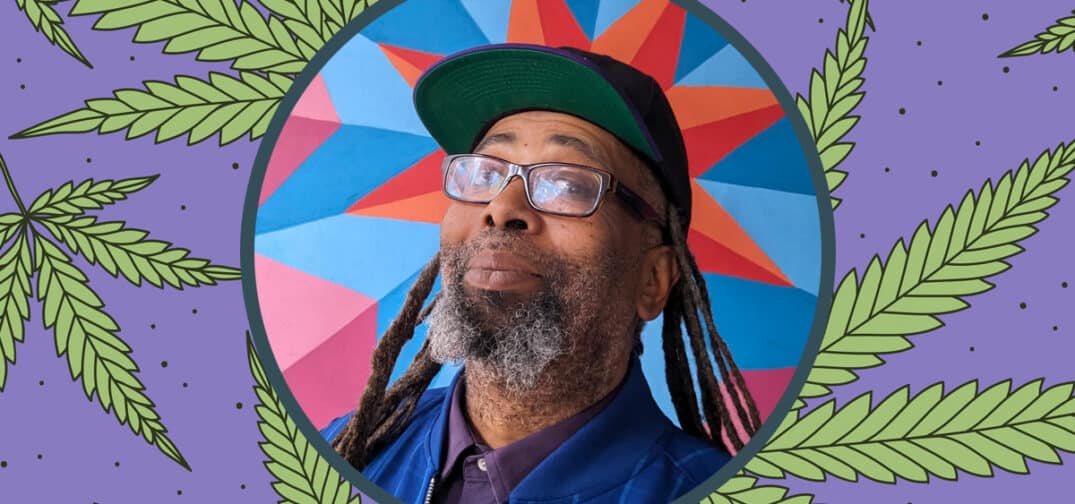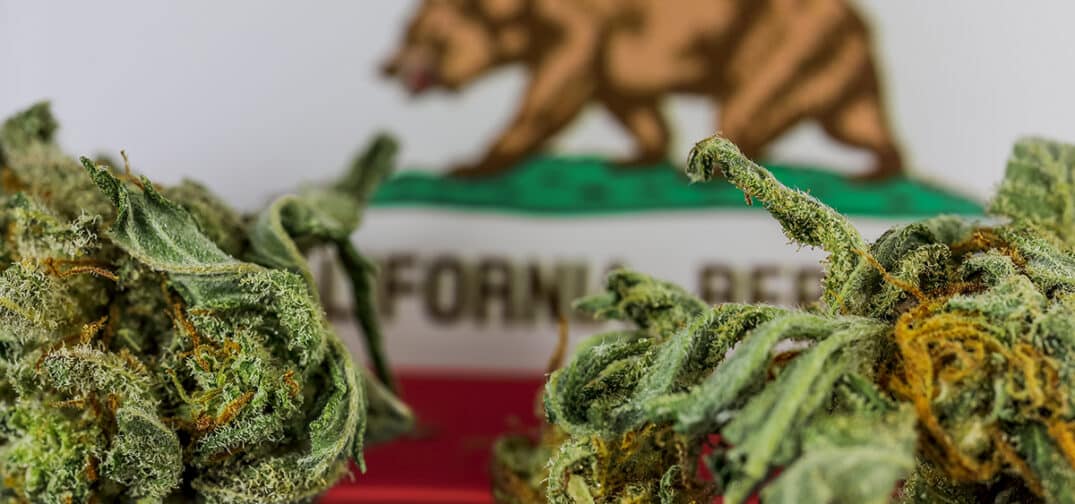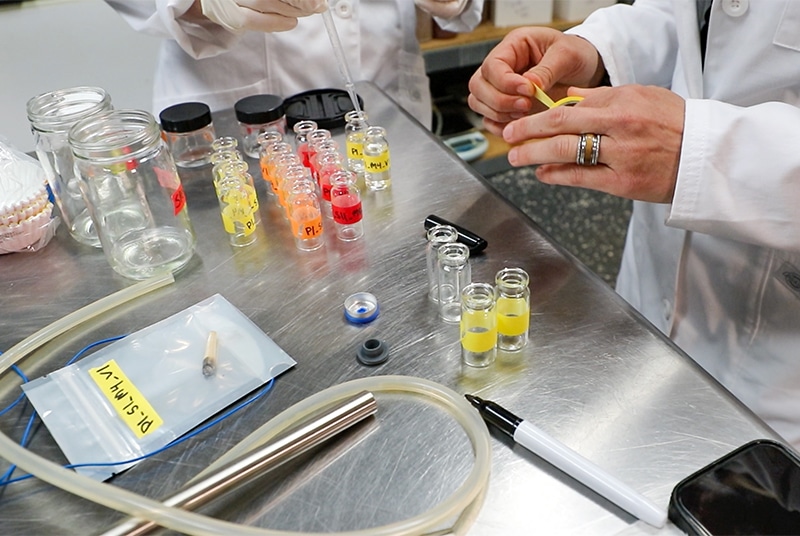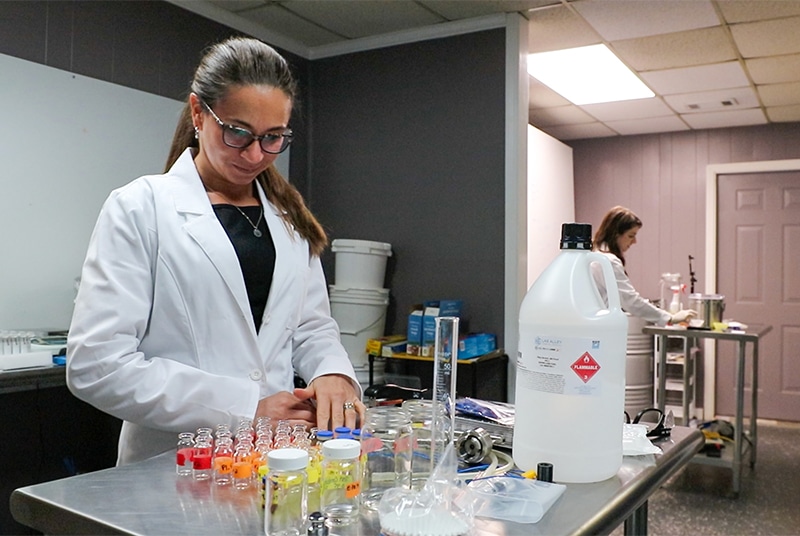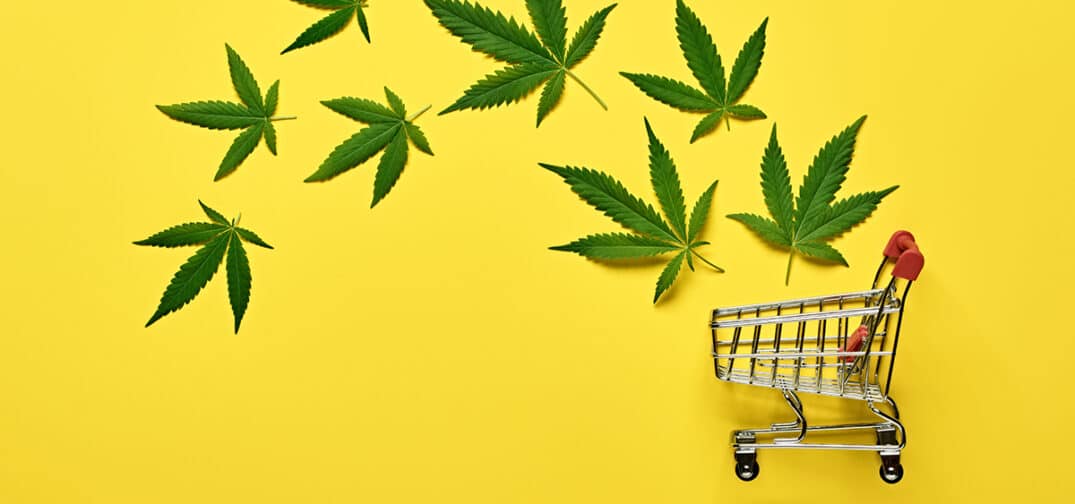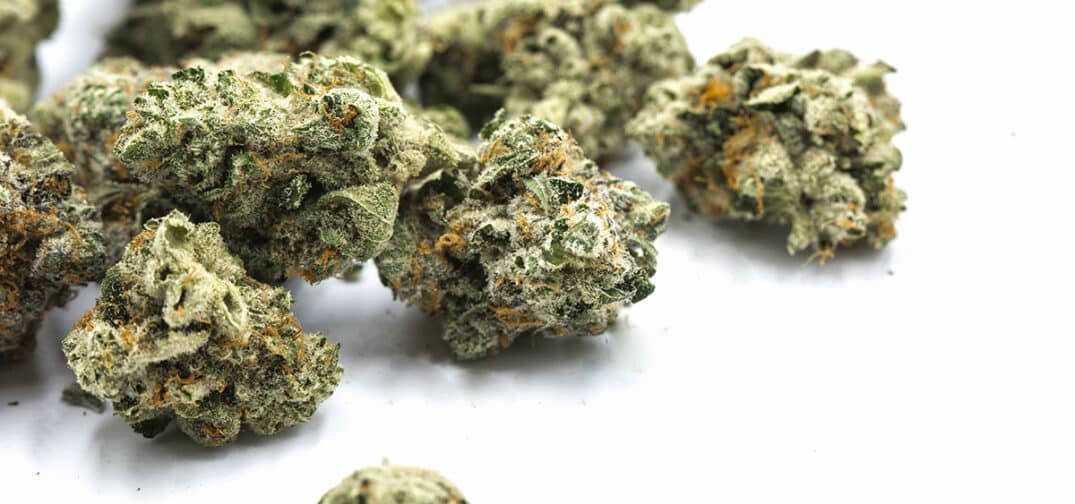In this episode of the Ganjapreneur podcast, host TG Branfalt connects with the multi-talented Ngaio Bealum. Ngaio is a true cannabis renaissance man—comedian, musician, writer, actor, and activist—known for his work as a host of numerous events and shows, including the International Cannabis Business Conference, and the Emerald Cup. In this engaging conversation, Ngaio shares his journey from performer to cannabis advocate, discussing how his background in activism and entertainment has shaped his approach to cannabis education and advocacy, what role entertainment plays in educating the public about cannabis, and more. Listen to the episode below or in your favorite podcast app, or scroll down for the full transcript!
Listen to the episode:
Full transcript:
Editor’s note: this transcript was auto-generated and may contain typos/errors.
TG Branfalt (00:09):
Hey there, I’m your host, TG Branfalt, and this is the Ganjapreneur.com podcast where we try to bring you actionable information and normalized cannabis through the stories of ganjapreneurs, activists and industry stakeholders. Today I am real excited to be joined by Ngaio Bealum. He’s a comedian, musician, writer, actor, activist, previous host of the Cannabis Planet and host of the International Cannabis Business Conference and Emerald Cup. How are you doing this morning, my good man?
Ngaio Bealum (00:37):
I’m awake, which is the first step. We wouldn’t, it’s first step to most days last night. Yeah. Yeah. Wake up every day is a good day if you’re awake and relatively free.
TG Branfalt (00:50):
Relatively free is–
Ngaio Bealum (00:51):
Relatively way to describe it. We all have minor hangups and problems constraining our true freedom, but we’re doing our best.
TG Branfalt (00:58):
So before we get into your role as basically a cannabis renaissance man, tell me about yourself. Give me a little bit of background on how you ended up the entertainer, the host, the sort of human being you’ve become.
Ngaio Bealum (01:17):
I’m an Aquarius, six foot three. I like long walks from the beach. Any kind of good music, I don’t know, man. I was a comedian and a street performer and I started smoking weed and really looking into why weed wasn’t legal and it seemed like bullshit to me, and I come from a long line of activists. So we just started activating and you have to offer what skills you have, and it turns out I’m pretty funny and I’m good at handling crowds and disseminating information. And so it just worked out like that. So I posted, I host the Oregon Hemp Fest and the Arizona Growers Cup and the Missouri Growers Cup and the old Seattle Hemp Fest and a bunch of different things. I’ve done some High Times Cups, I do the Emerald Cup every year. I do the International Cannabis Business Conference series. We do Berlin, we do Barcelona, we’ve done Zurich and Vancouver. It’s just really nice.
TG Branfalt (02:14):
So first off, what role do you think that entertainers or people in that sphere should have in activism, specifically in cannabis?
Ngaio Bealum (02:26):
I mean, I think every entertainer should be way more, not every, but a lot of entertainers should be more active activists than they are now. I mean, I think that’s just part of the thing you do. You know what I mean? And so for me it’s just kind of a no brainer. And entertainment and education kind of go head in hand if listen to old Ks one albums, the whole ed, if you think of Rocks edu, if you think of even things like, so we were supposed to be entertainment every day and we’re supposed to learn every day, so why not combine the two?
TG Branfalt (03:08):
And a lot of the standup that I’ve seen, it’s very smart, and I think all good standup. I mean, you look at George Carlin
Ngaio Bealum (03:15):
Like standup in general, or my standup in particular?
TG Branfalt (03:17):
Your standup in particular
Ngaio Bealum (03:19):
Did a lot of me standup. I seen, I was like, I’ve seen some pretty dumb standup, which is also great.
TG Branfalt (03:25):
But I think
Ngaio Bealum (03:26):
That I like stupid standup as well.
TG Branfalt (03:28):
The stuff that I really enjoy is the sort of smartest side. Like I said, Carlin, I really enjoy what came first for you. Obviously you probably used cannabis before you were an entertainer, but how’d you work that into your routine?
Ngaio Bealum (03:46):
You talk about what you know, right? That’s what they always tell writers. Talk about what you know. So I have two albums. One is called Weed and Sex, and the other is called Weeder and Sexier, which means, of course, weediest and Sexiest will be probably coming out sometime this year. Next
TG Branfalt (04:03):
What comes after Weediest and Sexiest?
Ngaio Bealum (04:06):
Lemme just get high and look at it. No, so I mean, that’s just how it is. I wanted to spread the word of cannabis legalization and activism and give people good information about cannabis in a fun and entertaining manner. And it just happened to work out like that. It’s interesting because when I first started 30 years ago, everybody was like, oh, well, we already have teaching ch, we don’t really need another pot comic. All he does is talking about pot, which is not true. But now that 30 years later, cannabis is legal in some form between the six different states, and we Why, and Germany just decriminalized now they’re like, oh, we need more pot comics, blah, blah, blah, blah, blah. So you could have listened to me 30 years ago, I’m not bitter,
TG Branfalt (05:03):
But 30 years ago, I mean more than 30 years ago, we had Cheech and Chong, right? In my sort of lifetime, the big movies were Friday. And so how has legalization changed?
Ngaio Bealum (05:18):
A lot of times, and this is just a thing for me, a lot of times in a lot of those cannabis movies, the stoner’s not the hero, right? Chris Tucker’s not really the hero in Friday. Anna Ferris loses all of her stuff in her stoner movie. Even the Afroman song, he fails repeatedly because he got high, which was bullshit, right? I was going to clean my house, and so I got high not, but then I got high, and so I got high because I had a nice sativa, helps me clean shit, and that’s how I feel about it. You think about Half Baked, he had to give up weed to stay with that girl. So we are trying to make cannabis users the heroes and not just tattoo have problems until they give up weed, which seems to be bullshit.
TG Branfalt (06:04):
Is there anything sort of contemporarily in the mainstream that does in your estimation, paint cannabis consumers as heroes?
Ngaio Bealum (06:13):
Cabin in the Woods? The stoner is correct the whole time.
TG Branfalt (06:19):
It’s not something I’ve ever seen actually.
Ngaio Bealum (06:23):
It’s a good horror movie, but he sees through the whole conspiracy, so he knows the whole, he figures it out right away.
TG Branfalt (06:30):
Wouldn’t that raise some questions though, that cannabis consumers are conspiratorial and thinking?
Ngaio Bealum (06:37):
Well, it’s not conspiracy if it’s actually true.
TG Branfalt (06:41):
That’s true.
Ngaio Bealum (06:43):
And the movie rules, so he just figured it out.
TG Branfalt (06:48):
So you’ve been a journalist For a long time. And currently you’re penning a Dear D column.
Ngaio Bealum (06:58):
Oh man, I haven’t written that one in a minute. So I’ve been a cannabis advice columnist for the Sacramento News Review. I did some for I think the Alternate, and I was the weekly columnist for the San Francisco Chronicle for a long time. And yeah, I think I did. Dear Gabby, for Leafly, shout out David Downs. We just did San Francisco Weed Week. I was the host of mc for a bunch of events out there, and it was fantastic.
TG Branfalt (07:25):
What were some of the challenges to penning a cannabis advice column?
Ngaio Bealum (07:31):
Make sure you have good advice. Call the experts.
(07:37):
That’s really the deal. Being a cannabis advice column columnist is almost like, let me Google that for you, but also I know a lot of people, so somebody has a good question. I’m like, oh, Ed probably knows the answer to that. He grows weed, or Lisa probably knows the answer to that. She wrote a whole book about weed and sex, or you call your homies who specialize in these things and you look up the news and you call an elected official or a police officer or two, and you’re like, what is the real rule on this? And sometimes you just go with your own personal experience, right? Like TSA doesn’t really give a shit. If you have a small amount of cannabis. If you bring a bunch of cannabis and try to be a little sneaky asshole about it, they’ll fuck with you. But if you got a few grams here or there that you can reasonably argue personal use, it’s not going to blow up the plane.
TG Branfalt (08:25):
What intrigued you about doing an advice column?
Ngaio Bealum (08:28):
Advice? It was not really my idea. I was running West Coast Cannabis magazine and it was falling apart. I don’t want to talk about it, but my homie who was working at the Sacramento News and Review, because I called him looking for work, I’m like, Hey man, I need some work. Let me write some stories for you. He was like, Hey, why don’t you do a weed column? And I was like, yeah, why don’t I do a weed column? That’s a good idea. And so we started out with the Ask 420 column of the Sacramento News Review, and I did that for five, six, let’s see, 2000, shit, I did it almost like 10 years, like 2010, 2011 to the pandemic.
TG Branfalt (09:09):
Is there a question that you were asked during your tenure doing that that sticks out to you as just kind of super weird?
Ngaio Bealum (09:18):
No, there’s no weird questions, only weird people.
TG Branfalt (09:26):
Is there any weird people that may stick out to you during that tenure?
Ngaio Bealum (09:33):
I can’t really think of anything. I mean, it’s just the usual, how will this cannabis affect me? I feel weird buying weed for my grandfather because he’s sick and I’m a super deep Christian, but this cannabis is really helping him, and I dunno how to reconcile that. Can I stick this medicated lollipop in my ass? These aren’t, it’s not rocket signs. Yes, you can.
TG Branfalt (10:03):
Not going to hurt in the long,
Ngaio Bealum (10:04):
You probably want one with a different shape. It’s the shape of the lollipop that’s the problem because you want one with the tapered in,
TG Branfalt (10:11):
So you have to mold it in that way for,
Ngaio Bealum (10:14):
You don’t want to get it stuck. So really you should just buy a different, anyway, a different device.
TG Branfalt (10:21):
So I mean, in your role as in entertainment, you had cooking on high, which was on Netflix. How can these sort of new mediums do you think help to maybe challenge the previously held cannabis stigmas? The ones that A, B-C-N-B-C-C-B-S, right? And all these sort of legacy news channels really opposed
Ngaio Bealum (10:42):
Shit, man, they still really oppose it. I mean, YouTube doesn’t like weed that much. Instagram hates me. Snapchat is kind of cool. TikTok is really strict about it. You can’t even say weed, you have to spell it. O-U-I-D. Wait for real, right? Oui’d, like your French. So I mean, I don’t know if we’ve really overcome a lot of propaganda. I’m Ngaio420. I built a lot of cannabis followers because I was on Netflix and all these other things. If I post a picture of cannabis or talk about a brand, Instagram gets super upset. I mean, I guess it’s okay to smoke weed or if I post a little stupid funny cannabis meme, Instagram loves it. They spread that one all around. But if I post some shit like, Hey, here’s some new rules, or here’s the new law, or here’s a new strain I just tried from these guys. They’re like, oh, you can’t do that. That’s promoting for use, and yet there’s people drinking the whole time. It’s still in uphill battle battles never state won.
TG Branfalt (11:44):
So when you post the stuff under your name and it gets, like has your account ever been banned or anything over?
Ngaio Bealum (11:56):
I’ve been shadow banned for sure. I think it’s stemming from the time I tried to raffle off a bong, which, fair enough. I was pushing, I was pushing the envelope a little bit on that. I don’t think I’ve ever been, I think I was locked out of my account for a couple of days once until we figure it out. But I’ve never, they threatened to ban me and I have friends who get banned, not all the time, but they’ve been banned a few times. I try to keep it pretty cool. I’ve tried to follow the rules, but it’s hard because I just want to talk about, that’s my whole thing. If I find some good weed, I want to spread the word. You know what I mean? Or if I find some bad weed, I want to spread the word. Or if I have some good cannabis advice, I want to spread the word and they won’t let me do it.
TG Branfalt (12:40):
So I’ve read,
Ngaio Bealum (12:42):
And it’s weird because if you have a smaller account, you’re kind of under the radar. You can do almost anything you want. But once you get to a certain point, then there’s scrutiny until you get to an even bigger point, and then you can do almost anything you want to hear. So I need like 400,000 more followers. If your listeners are listening, I know you have 400,000 listeners, have them all,
TG Branfalt (13:05):
But then you’ll get real banned because they’ll know what you’re doing.
Ngaio Bealum (13:10):
No, it’s not buying followers.
TG Branfalt (13:14):
No, no, no, no. But because then you’ll be I’ll beg and they’ll know underground anymore. You’ll sold
Ngaio Bealum (13:21):
Out. Listen, high times gets to buy ads on Instagram, and yet I can’t smoke a bong. It’s just the weirdest thing. I don’t understand the rules. I feel like the rules are arbitrary and capricious, and depending on which federal agent you have watching your Instagram account at any particular time, that’s how far they’ll let you go.
TG Branfalt (13:43):
They’re definitely watching everyone’s accounts,
Ngaio Bealum (13:46):
Even as we speak.
TG Branfalt (13:48):
Even as we speak, there’ll be privacy. They’ll be writing this by hand, transcribing this by hand,
Ngaio Bealum (13:52):
Privacy is dead, discretion is forever.
TG Branfalt (13:57):
I mean, it’s given me convenience or give me death sort of atmosphere at this point, right? We’re totally happy to be tracked as long as they’re selling us Nikes, right?
Ngaio Bealum (14:07):
No, I don’t want them to sell me Nikes. They sell me golf things and advice on how to meet thick women apparently is what Instagram thinks that I’m all about. Here’s some golf apparel and here’s some cute, thick girls.
TG Branfalt (14:21):
Are you a good golfer?
Ngaio Bealum (14:23):
I like to golf.
TG Branfalt (14:26):
I like to golf badly On nice days.
Ngaio Bealum (14:31):
I just like to golf. Sometimes I’m halfway decent for a hot minute, and sometimes I’m not a very good golfer at all.
TG Branfalt (14:37):
How does weed help your golf game? I
Ngaio Bealum (14:38):
Still enjoy it. Weed does not help my golf game. I wish it did. I keep trying to find the right strain because I used to warm up and then smoke some weed and then see it goes and try to lock it in. I think it’s better for me if I get a little high on the way to the golf course and then let it smooth out by the time I get to the golf course. But I can’t just smoke weed constantly, then the overthinking starts. That’s the thing about golf. You have a lot of time to think to yourself, and so then it’s like, oh, I want to put my elbow here and my knee here and the thing. No, shut up. Hit the fucking ball. Quit thinking. I
TG Branfalt (15:12):
Do like driving the cart though. Stoned. It’s pretty great.
Ngaio Bealum (15:16):
Oh yeah. I mean, yeah, listen, I like being stoned on the golf course as well. It’s very nice. But if I’m trying to take it seriously, if I have to beat my brother, then I have to pay attention to what’s going on. If I’m just mucking about it, if it’s a practice round, then sure, whatever practice round
TG Branfalt (15:31):
Every round for me is a practice round. My man. I’m terrible.
Ngaio Bealum (15:34):
Amen.
TG Branfalt (15:36):
So I’ve read on the internet every
Ngaio Bealum (15:37):
Day is a practice round get you in on,
TG Branfalt (15:43):
I’ve read on the internet that you have a love for Sungrown cannabis.
Ngaio Bealum (15:46):
I love.
TG Branfalt (15:48):
So tell me about that preference.
Ngaio Bealum (15:53):
I personally think it tastes better. I think it’s better for the environment. The sun is relatively free. Cannabis knows what to do. And I understand we’re doing sungrown. You can get one. I mean, if you’re doing greenhouse now, you can get 2, 3, 4 light death. You can get 2, 3, 4 harvest a year. And I understand people are like, we only get one harvest a year. Some shit happens, blah, blah, blah. But I don’t know. I just like it. I like the whole vibe, right? I’m here for the plant. I’m here for the hippie farmer action. And a lot of times you go to these states where they’ve just legalized weed and it’s all indoor facilities, but you could tell it tastes like commercial pressure. It tastes like we have to get this done in eight weeks. We have to stay on the schedule. What if your cannabis needs a little longer than that?
TG Branfalt (16:42):
Do you think that consumers would be willing to pay more for the stuff that’s harvested once a year, sungrown small farm? Because
Ngaio Bealum (16:52):
You would think, but no, they won’t. We really need to work more on, how would I say, cannabis appreciation classes like cannabis tasting. You do wine tasting. A lot of people just look at, ah, I just want the shit that’s 31% THC because I’m trying to get fucked up. I’m like, well, you’re going to get fucked up, but it may not be the high you want, right? Look for what’s it smell like? Look for the terpene profiles. You, you might do better at something at 19% because then you could smoke that whole joint while you watch the sunset as opposed to just two hits and then one of your friends is freaking out because he’s a lightweight, blah, blah, blah, blah, blah. So I think more understanding of what to taste for, what to look for, how to vibe with cannabis. The problem of course is people want to treat it like cigarettes, right? Comes prepackaged. Now it’s more like pipe tobacco or a fancy cigar or a fancy wine. Sure, you can get two buck chuck, but you should also be able to buy some bordeaux la fu or whatever.
TG Branfalt (18:06):
Yeah, I mean, I’m pushing 40, right? I consider myself a mature cannabis consumer, and that’s what I look for. Do you think that that’s sort of a demographic thing? Us we’re not 20 anymore. You think that that’s the route that we’re just going to go to? The people that your friends, your friends are probably sort of higher class smokers too, but are you seeing that sort of trend? Personally,
Ngaio Bealum (18:30):
I definitely hang out with a bunch of weed nerds for sure. But I’ve also smoked,
TG Branfalt (18:35):
Maybe it’s just a weed nerd
Ngaio Bealum (18:36):
Swag. I don’t know. I mean, I’ll buy a six pack of Budweiser. Well, I won’t buy a six pack of Budweiser, but I’ll buy a six pack of regular beer to go to the party, but then when I get home, I got to Sam Adams or get it, you know what I mean? So I think it depends on what you’re doing. If you’re just going to show up at a party with a big half ounce, two half ounce of weed so you can roll blunts all day, that makes perfect sense. I try not to make fun of people for having weird tasting weed or for liking chain restaurants that are actually horrible, but they grew up in a small town and that was the fanciest place. I really had to stop making fun of people for that. That’s not their fault. So education more than ridicule at all times.
TG Branfalt (19:25):
And you do a lot of the education kind of focused events, the Hempfest and things like that. And is the response different among crowds as a comedian? Is that response, is that hosting gig different when you’re around those types of crowds than maybe other just standup stuff you do for regular standup crowd?
Ngaio Bealum (19:53):
What I’m hosting, it’s not always necessarily about getting the jokes off, but about creating a vibe and getting some jokes in. But also you can target it more So if you’re doing a grower’s festival or a hemp festival, all your jokes about trimmers, everybody knows what you’re talking about. Whereas if I’m just doing a regular comedy club show and I talk about getting a repetitive stress injury from trimming, it may not be the same. It may not be the same. So I don’t know. You can get deeper into it when you all have the same kind of base of cannabis knowledge. But funny’s funny man. You just got to find a way work.
TG Branfalt (20:37):
So has your, I don’t want to say routine, but how have you been able to adapt your knowledge to hosting in that sort of thing? In the wake of legalization? I understand the repetitive injury from trimming thing that wouldn’t have really made a whole lot of sense 25 years ago
Ngaio Bealum (21:00):
Right now. But also I do different jump now. One of my things is about now that that cannabis is legal and you can have a job in the cannabis industry, that means that it’s not so bad when you show up at the parent-teacher conference smelling a little bit like weed. I just got off work.
TG Branfalt (21:22):
And you do talk about cannabis consumption as a parent?
Ngaio Bealum (21:28):
Yes. Weed made me a better parent for sure. My kids, my adults are awesome.
TG Branfalt (21:35):
Now, I don’t have any children myself. And so I do like to ask this question because I grew up with, it was very open. My mom openly consumed cannabis and she gave me my first bowl as a matter of fact. I mean, truth be told. Nice. I’m 15 years old. Here you go. You don’t know how to roll, take this fucking brass pipe. But what was it for you raising bras?
Ngaio Bealum (21:56):
Bras, pipe.
TG Branfalt (21:57):
Oh yeah, the fucking brass pipe. Boat,
Ngaio Bealum (21:59):
Bro. Pipe.
TG Branfalt (22:00):
That’s exactly what it was. I shit you not I shit, you die
Ngaio Bealum (22:05):
Shit.
TG Branfalt (22:06):
Exactly right.
Ngaio Bealum (22:09):
I had always been on my kids. Some things are for adults like drinking and weed and drugs and some things are not for kids, and that’s just how it is. So you should wait until college and that was kind my whole thing. I always like, if you want to do drugs in college, once you get your shit together and prove that you can be a somewhat semi responsible young adult. If you want to start experimenting with things like smoke some weed, be careful with alcohol, stay off the pills. That’s kind of my whole advice the whole way. Do some mushrooms every once in a while if you really want to, but do it mindfully. Don’t just be taking mushrooms and fucking off white boy. Wasted is a form of privilege.
TG Branfalt (22:46):
That’s very true,
Ngaio Bealum (22:48):
Right? Because you just think everything’s going to work out. It doesn’t always work out like that.
TG Branfalt (22:52):
No, I mean, I also grew up very rurally, so I mean doing, you
Ngaio Bealum (22:57):
Kind of have to get fucked up when you live that
TG Branfalt (22:58):
Far. Yeah, and get away with it, right, because the cops would show up and they’d just tell you to go fuck off. Right? That’s not what happened when I moved to cities and stuff. The disparity is fucking real,
Ngaio Bealum (23:12):
Real, real,
TG Branfalt (23:13):
Real, real. What is your preferred method of consumption? I see you spoke a lot of joints.
Ngaio Bealum (23:20):
I smoke a lot of joints. Shout out DaySavers. I’m asking those white guys for a job, so shout ’em out. They make great rolling papers. I like bones. I like the blunt. Every once in a while, dabs make me quiet. So I don’t always do ’em at public because I can’t be at a hosting a festival. And they’re like, dude, these dabs, they’re like, well, they’re paying me to talk. They’re not paying me to sit in the corner eating snacks, making up backstories, random people that I see. Just in my head, that guy looks like he used to be a senator. He’s probably a high school coach. Good to see you Reverend.
TG Branfalt (23:56):
Has legalization changed your methods of consumption?
Ngaio Bealum (24:05):
I smoke in the street more often. I dunno what you mean by changed my methods of consumption. I mean, I still
TG Branfalt (24:11):
Smoke. Well, prior to legalization, for whatever reason, I didn’t smoke as many joints and then weed was legal. It was relatively cheaper. Somehow I live near a reservation. That probably helps. That
Ngaio Bealum (24:21):
Probably helps.
TG Branfalt (24:22):
And so now I just predominantly smoke joints. Don’t know.
Ngaio Bealum (24:26):
They’re also very convenient. A pre-roll is very easy to buy these days. You can just get a joint on your way. You can roll a joint. I mean, I like joints because they don’t break if you drop ’em.
(24:39):
Right? That’s true. And they’re scalable. If you have a small pipe and there’s 15 people in the circle, but you can just roll a bigger joint or roll three joints and pass them around. You know what I mean? They’re not the most efficient way to smoke weed probably. But also putting a cloud of weed in the air is still a form of civil disobedience. It’s also a call to fellowship. You understand? If you are walking down the street and you smell some people smoking weed or whatever, you see the circle odds are you can step inside, at least say hello, say what’s up. Maybe if you brought a bowl too, you’d be like, Hey, now you made new friends. Right? You stand in the circle. It denotes equality. It’s like peers.
TG Branfalt (25:21):
This interview is coming on the heels of you seeing a phish show in Nevada,
Ngaio Bealum (25:27):
Vegas at the sphere,
TG Branfalt (25:30):
The big ball in the middle of the city.
Ngaio Bealum (25:33):
The big ball.
TG Branfalt (25:35):
Yeah. It’s been Memed a lot. What was it like in Nevada? Are there consumption lounges? Are people smoking on the street?
Ngaio Bealum (25:47):
You’re not supposed to smoke on the street. People don’t really smoke on the strip. They have a couple of consumption lounges now. New W has a lounge. I think Planet 13 has a lounge behind Resorts World. World. The Artisan Hotel has a cannabis springy smoking wing of their hotel now.
TG Branfalt (26:09):
Really?
Ngaio Bealum (26:10):
So you can book a room? Yeah, yeah, yeah, yeah. It’s kind of funny. Even though cannabis is legal and you can get a smoking room in a hotel, a lot of hotels don’t want you to smoke cannabis in the smoking room, which is weird because I always think that weed makes smoking rooms smell better. If you’ve ever got a smoking room in a hotel, they smell like nicotine and regret. But sometimes you can make it smell like weed and sex, and that’s better. That’s better for me. So I mean, I think it’s easier to hang out in LA now that cannabis is legal, even though I don’t feel like as much of a dangerous outlaw as I used to. But it still, it’s probably better as we get older and mellow out. It’s still a good time.
TG Branfalt (26:55):
Do you ever miss that
Ngaio Bealum (26:57):
They do a lot of weed things. I do miss that feeling. I miss that feeling. Sometimes I go to Idaho and carry weed around just so I could be nervous again.
TG Branfalt (27:07):
I also miss that feeling quite a lot actually.
Ngaio Bealum (27:12):
But I also got to say, I got to say, maybe you just hot box your car and now you’re standing in the Starbucks and a bunch of cops walk in and it’s not a problem. That’s fantastic. Right? I was smoking a joint on K Street waiting for the bus in San Francisco, and three sheriff’s deputies walked by while I’ve smoking this joint, and it was just like, Hey, what’s up? Oh yeah, hey, what’s up? And that was it.
TG Branfalt (27:33):
I still sometimes get, I got pulled over and I had an ounce in my car, and I was a little nervous still knowing that I’m in New York, I’m straight. Right?
Ngaio Bealum (27:47):
You’re all good. It’s a whole different feeling, man. It’s a whole different feeling. I was just in Berlin for the International Cannabis Business Conference and we’re staying at the extra hotel. And apparently the weekend before our conference, there was a lot of stuff going on in Berlin. There’s all these protests. There’s a big soccer match. So they had brought in some cops from out of town, a bunch of cops. We look like a fucking police convention at the hotel I’m at. And at first I was like, oh, Jesus Christ, this is not what I need right now. But then I realized, hey, they just decriminalized cannabis in Germany and you can actually smoke in the street. That’s part of the rules. I think it’s like before 9:00 AM and after 6:00 PM So while everybody’s in working that’s supposed to smoke in the street, be responsible. But after that, if you’re just walking around, you can smoke. And so I was standing outside the lobby doing my thing and it was not a problem. It was fantastic.
TG Branfalt (28:46):
And you were there right after they passed the bill? It must have been.
Ngaio Bealum (28:51):
Yeah, yeah, yeah. They passed the bill April 1st and I got into Germany April 8th.
TG Branfalt (28:59):
Or what was the atmosphere like among the attendees of the conference?
Ngaio Bealum (29:04):
Everybody’s very excited. But here’s the thing. A lot of the stories you read will say that Germany legalized cannabis and they didn’t really, they just super decriminalize it. So now you can carry 25 grams in your pocket. You can have 50 grams at the house. You can grow three plants per person wherever you live in all the counties. Bavaria has to fucking do it as well. And they can’t, Bavaria can’t be all square like Texas. They have to go along with it, but you still can’t really find a place to buy it. You still got to go to Gritz or Park. It’s so funny, I was at this one nightclub and people kept walking up to me and trying to buy drugs, weed or whatever. All these drugs is Berlin. And at first I was like, man, I think y’all are kind of racist. But then I realized what, I’m also in a town where I don’t know anybody. I also look for a friendly dreadlock person, try to buy drugs from, so sometimes sweeping generalizations to be effective.
TG Branfalt (30:07):
That is actually the exact, I
Ngaio Bealum (30:10):
Lost you. Hold on. Oh, there you go. What’d you say?
TG Branfalt (30:13):
That is actually the exact demographic in which I bought weed from a DJ in France.
Ngaio Bealum (30:19):
Friendly dreadlock person, correct? Yes.
TG Branfalt (30:24):
It was great weed too. It was cheap.
Ngaio Bealum (30:28):
The odd on your side, the on side. I’ve bought good hash with some friendly dreadlock people all over the world.
TG Branfalt (30:36):
Why haven’t we seen a lot of black hash post legalization? You think
Ngaio Bealum (30:44):
A lot of black hash you said?
TG Branfalt (30:46):
Yeah, black hash.
Ngaio Bealum (30:48):
You mean like the old tool, like the Moroccan style?
TG Branfalt (30:50):
Yeah. Yeah.
Ngaio Bealum (30:51):
Go to Europe, bro. Bro. It’s all, all solventless handmade chara style. This is fresher Morocco. This is the Morocco style. This is the French he kno style. They smoke that stuff all the time. They throw it in a tobacco cigarette. Those guys love a little hash. Lisbon loves hash. Spain loves hash. Germany loves hash. London loves hash.
TG Branfalt (31:13):
But it seems a little strange that we have legalization in the states and black hash is still really kind of hard to find. I find
Ngaio Bealum (31:20):
That strange because the weed nerds live rozen, bro. It’s all the terpenes, bro. This is 92%. I’m low temps. I’m a low temp smoker. You’re going to burn off all those vital fucking terpenes, bro. If you’re, your temperature are too high, listen, different terpenes. What strain is it? Because my heat temperature signature is very specific to the strain that I’m smoking at this point. Because people like to nerd out. People like to be fancy, and there’s nothing wrong with that. You can smoke regular good old fashioned Moroccan style hash all you want, but some people are like, oh, this is a live resin razin whip. Check out the diamonds, bro. I’m coming in at 98.65% THC.
TG Branfalt (32:10):
Can you fuck with that?
Ngaio Bealum (32:13):
Like I said, it makes me quiet. I don’t do it. I fuck with it one time. I tell people all the time, the more dabs you do, the more dabs you’re going to do. Right? It makes your tolerance a little wild. And so that’s how people get super up deep into it. I’m like, dabs should always be a sweet, not necessarily an everyday thing. At least for me. I don’t judge anybody for how they use drugs as long as they’re responsible adults.
TG Branfalt (32:40):
I’ve learned from being in my mid twenties when diamonds started emerging and dabbing diamonds and the fear, man, the fear was real. I couldn’t do it.
Ngaio Bealum (32:53):
You can definitely smoke yourself into a panic attack. But I mean, one of my favorite things that we’ve learned from cannabis over the past 15, 20 years is that THC is not the end all be all of cannabis enjoyment, right? There’s C, B, D, there’s CDN, there’s C, B, G, there’s all the cannabinoids, all the terpenes and the entourage effect work to make the experience more pleasant. And so I think that’s the deal is you want to find the combination that works for you as opposed to just being, oh, well this one’s 35% tt. It’s obviously way better than this one is 29% TT it. It’s not necessarily true. I put out a line of three roles one time and they tested it like 18% THC, but I would tell everybody, I was like, don’t let that label fool you because you’re going to be high as hell. You’re going to be high as hell off of this. And then they would kind of laugh at me and then they would take two hits and they’d be like, dude, I’m really fucked up right now. I was like, I told you, because it’s not just about the THC content, what the terpenes do, how they all interact.
TG Branfalt (33:57):
Are you referring to the mothership farms line?
Ngaio Bealum (34:01):
This was the Green Shock Farms line. Oh no. It did come off of mothership. Yeah. So green. So Greens Shock Farms was the farmer. Shout out Mark and the crew. And then Mothership was a distributor. So when mothership presents, when Guile four 20 presents, green Shot Farms’, a lot of hands.
TG Branfalt (34:22):
And I’ve always had this question, how much of a sort of role did you have in choosing the stuff that had your name on it?
Ngaio Bealum (34:30):
Bro, the biggest role. It’s got my name on it, but my whole concept was I’m going to go out into the woods and I’m going to talk my homies out of their head stash. Not the regular shit that they grow for everybody. Like, Hey, I only got two pounds of this, dude, I need a pound and a half of it. No, you can’t listen. I need a pound of this. The people have to smoke this, right? We’re only releasing 600, 700 of these. Because I had to talk about, I almost had to wrestle him to get him to let go of some of this weed that I think you will all enjoy. I’m not just letting you throw some shit out there. I’m calling my homies. I’m going out into the woods and smoking with my boy sticky and smoking with my boy mark and smoking with my other homies. Can I get some of this pink Tanzi cross? No, man, I get it. Come on dog. I got to have so, but people need it. That’s my whole thing. I like to Go ahead.
TG Branfalt (35:20):
If you were looking for, if were going to release another product, would you sort of take the same approach to find another partner? Or would you maybe track down some good stuff that you had maybe not encountered in the woods, if you will?
Ngaio Bealum (35:35):
Well, there’s a couple ways to do it, right? If you have a good distributor, they probably know some people, so you can look at who they’re working with and talk to those guys and be like, I want to introduce one of your, what’s your favorite shape? Maybe not necessarily you’re the best seller because people look for certain names as work, but what’s something you think people would really get a kick out of? And then if I enjoy it, then I can spread the word, Hey, this is my shed right here. Try this chocolate hashberry, try this, whatnot. Get into it. And I think that’s a good way because I don’t know, it’s so tough. Everybody always wants to make a new strain. Everybody wants to be the next cookies or train wreck or things like that. And I think it’s great, but I also think we need to remember to hold on to some heirloom strains. Where did the champagne go? What happened to the AK 47? Where’s the Blue City diesel? Things like that.
TG Branfalt (36:29):
I always tell my friends, and I don’t know if this is something that y’all had in California, beers
Ngaio Bealum (36:36):
BC Bud.
TG Branfalt (36:37):
That’s where it allegedly came from. I missed that shit, man.
Ngaio Bealum (36:41):
Allegedly.
TG Branfalt (36:42):
Allegedly. Of course, it’s allegedly.
Ngaio Bealum (36:44):
It came from there. Those BC Bud used to come flooding that, especially with when the Los Angeles cannabis dispensaries really started to take off in the two thousands. I wouldn’t say the market was flooded with BC Bud, but there was a lot coming down because the supply and demand was crazy at that
TG Branfalt (37:04):
Point. I always really liked that shit. And it’s like gone forever in the ether.
Ngaio Bealum (37:11):
It’s still in British Columbia now. Nobody needs to smuggle it down here anymore,
TG Branfalt (37:17):
But I’m going to go smuggle it down here because I miss, I do. I miss it town.
Ngaio Bealum (37:24):
Go to Vancouver. Go to Vancouver. S smoke some weed. You’ll recognize it.
TG Branfalt (37:30):
I go as far as Toronto,
Ngaio Bealum (37:33):
I love Toronto.
TG Branfalt (37:35):
I also love Toronto. I mean, so Canada’s a civilizes country and all.
Ngaio Bealum (37:40):
I like the all night Montreal bagel place in Toronto.
TG Branfalt (37:44):
Yes, that is a very good place. Post legalization.
Ngaio Bealum (37:48):
There’s a place I’m talking about with the wood oven. Yeah, they got the wood oven. They’re open like 24 hours. And you get that Montreal style bagel,
TG Branfalt (37:55):
That Montreal style bagels. Legit
Ngaio Bealum (37:58):
Bra. Bra. I’m here for it.
TG Branfalt (38:01):
And one more question, sort of going back to sort of strain names and weed nerd stuff. Do you foresee that’s where the industry goes, that we move away from strain names and we start going and buying stuff by like, all right, I want the X amount of this cannabinoid, so on and so forth, and move away from strain names.
Ngaio Bealum (38:24):
I don’t know if the testing is going to be that exact for that. I think what I see, because we were moving away from the deli style where you go in, used to go in, they have all the jars and open the jar. Yeah, that’s the one that they pull out a couple grams for you because the smell, right, the terpenes make your body react. Because weed loves us and wants us to be happy. All the different terpenes have different smells. So you get to, oh, I always like to smell for black pepper. Or if that’s pine trees, then that’s the one for me. Everybody does that thing, so they don’t really do it like that anymore. I mean, they have the little jars you can over, but you can’t always get the full effect. I think really people are going to have to lean on brands.
(39:03):
You have to know that fig farms always puts out good shit, you know that connected almost always puts out good shit. Wild makes great edibles because you can’t smell the weed for yourself. So you really have to trust the brand. You have to find a budtender who smokes like you. Right? When I was a budtender in la, there were definitely some people who we kind of smoked the same. So when some shit came in that I liked, I knew that they would like it. And there were also some people, they didn’t want to be served by me because we had vastly different taste of weed, but they liked my homeboy. They smoke the same and they’re like, oh yeah, dog, this is mine. You know what I mean? So that’s how it goes. So rely on the professionals, find a couple of good, consistent brands you like and grow your own weed. That’s my advice.
TG Branfalt (39:50):
Is there a smell that you know that this is for you? What’s that for you?
Ngaio Bealum (39:57):
Feet, cheese, skunk. I also like pine trees. I like lemons. I like all that. Tropical. Tropical cherry is nice, but it makes me sleepy, but it’s delicious. So I smoke it at night and then I pass out, but it’s so tasty.
TG Branfalt (40:13):
I could Smells like basements,
Ngaio Bealum (40:17):
Dan.
TG Branfalt (40:17):
Yep.
Ngaio Bealum (40:19):
Yeah, yeah, yeah, man. Burning tires, all that shit. I like a stinky weed.
TG Branfalt (40:25):
They say in Nevada that it has the highest miene content among all of the legalized markets. Yeah, that makes
Ngaio Bealum (40:34):
Sense. That makes sense. Because everybody likes that cush. They like that cush. They like those cookies, they like that runts. That’s all that me. Scene action. Yeah. Yeah, it makes sense. Everybody out here is a baller and a gangster, so it’s Vegas, bro. We’re bling, slightly bling almost for
TG Branfalt (40:54):
A day,
Ngaio Bealum (40:55):
Right? By the next
TG Branfalt (40:56):
Day you’re balling
Ngaio Bealum (40:57):
In a totally different way, just one day, right? There’s a difference between B-A-L-L-I-N-G and B-A-W-L-I-N-G.
TG Branfalt (41:06):
Yeah, you’ve lost all your money and can’t buy any mercene in heavy weed. So last question I have for you, man. What advice would you have for young entertainers, people who are maybe thinking about being a cannabis centric entertainer?
Ngaio Bealum (41:26):
First of all, that’s my job. Find your own spot. No, I’m kidding. There’s plenty of space in the world. The pie is always big stop thinking of things as finite. The planet is infinite, and we have to stop creating bullshit, scarcity. There’s more than enough to go around for everybody. That’s just general philosophy in terms of that. Dude, I wish I had taken a marketing class when I was a kid. Interesting. When I was a young college student, I studied music and theater, but I didn’t study marketing or search engine optimization. Well, we didn’t have search engines, right? I was a college in 1990 or goddamn business, but
TG Branfalt (42:11):
Still typewriters?
Ngaio Bealum (42:15):
We had computers, sir. The Tandy, TRS 80 were programming shit in Basic 25 if then, but that
TG Branfalt (42:29):
Class stopped
Ngaio Bealum (42:31):
And have fun, be polite, smoke weed. I don’t know what to tell you. I just kind of hustled my ass off and we got to where I’m, but I’m still hustling. So that’s how it goes. Have fun. Be yourself.
TG Branfalt (42:45):
Where can people find more about yourself and the things that you do and watch you smoke joints on the internet?
Ngaio Bealum (42:53):
Fortunately, there aren’t pictures of me at the post office. You can follow me on the Instagram N ao. I’m also on the Twitter or the X-N-G-A-I two. I have a Patreon that I’m going to start dumping shit into any minute now. There’s some stuff up there, but we’re going to put more stuff up there this week. And then I just started my substack as well. And I will be, I’m traveling quite a bit. I’m doing more travel here. So really the Instagram is the best way. I should get my website. Back up. What do you know about WordPress? Anybody know anything about WordPress? Call me up.
TG Branfalt (43:28):
We use WordPress, at Ganjapreneur, but I only write things in host podcasts. You should go look at my record store website, but it’s basically just three links. I can’t be of any help at all
Ngaio Bealum (43:38):
That’s all I need. I can’t figure out this WordPress ui or I would do that.
TG Branfalt (43:44):
There’s a guy somewhere in this organization knows how to do it. I’m not that guy.
Ngaio Bealum (43:50):
I understand. I’m not that guy. Now. Know your strengths. Play to your strengths.
TG Branfalt (43:55):
Ngaio, this has been a lot of fun.
Ngaio Bealum (43:59):
TG I had a great time. Have me over anytime.
TG Branfalt (44:02):
Most fun. Well, we should do this again next time. We’ll do general philosophy though, because you sort of scratched the surface there now. I’m really intrigued.
Ngaio Bealum (44:11):
Let’s get into it. I’m here for it, man. I’m down. I’m super down. Lemme know brother.
TG Branfalt (44:17):
Our guest is Ngaio Bealum, comedian, musician, writer, activist, actor, Renaissance man,
Ngaio Bealum (44:27):
Friend of small animals,
TG Branfalt (44:28):
Guy who likes Kush. And you can find more episodes of the Ganjapreneur.com podcast in the podcast section of Ganjapreneur.com. Wherever you get your podcast. On entrepreneur.com website, you’ll find the latest cannabis news and cannabis jobs updated daily along with transcripts of this podcast. This episode was engineered by Wayward Sound Studio. I’ve been your host, TG Branfalt.
